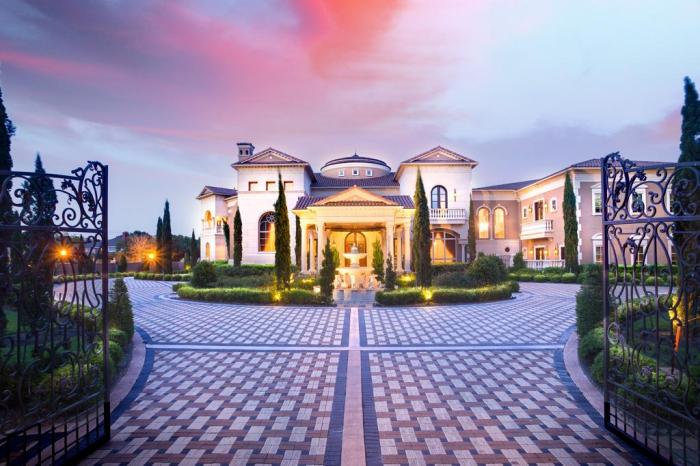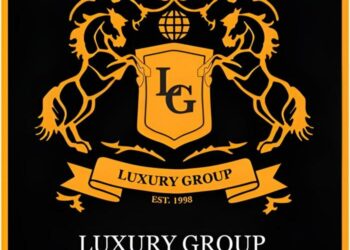Embark on a journey through the realm of luxury realty, where opulence meets sophistication. This guide delves into the essence of luxury properties, unveiling the allure and exclusivity that define this segment of the real estate market.
From lavish amenities to prime locations, discover what sets luxury realty apart and why it continues to captivate discerning buyers worldwide.
Overview of Luxury Realty

Luxury realty refers to high-end properties that offer exclusive features, amenities, and design elements. These properties are typically located in prime locations and cater to affluent buyers who seek luxury living experiences. The significance of luxury realty in the real estate market lies in its ability to command premium prices and set trends for architectural innovation and interior design.
Characteristics of Luxury Realty
- Prime Location: Luxury properties are often situated in prestigious neighborhoods or waterfront locations.
- High-End Amenities: These properties boast state-of-the-art amenities such as spa facilities, private theaters, and smart home technology.
- Custom Design: Luxury realty often features custom-designed interiors, high-quality finishes, and premium materials.
- Privacy and Security: Luxury properties provide a high level of privacy and security for residents.
Target Market for Luxury Realty
Luxury realty caters to high-net-worth individuals, celebrities, business leaders, and foreign investors seeking exclusive properties. What sets luxury realty apart from regular real estate is the emphasis on unique features, exquisite craftsmanship, and personalized service tailored to the needs of discerning buyers.
Global Trends and Demands in Luxury Realty
- Increasing Demand: The demand for luxury real estate continues to rise globally, driven by economic growth and wealth accumulation.
- Focus on Wellness: Luxury properties now prioritize wellness amenities such as fitness centers, spas, and green spaces to enhance residents’ well-being.
- Sustainable Design: There is a growing trend towards eco-friendly and sustainable design in luxury realty, with an emphasis on energy efficiency and green building practices.
- Tech Integration: Luxury properties are incorporating advanced technology solutions, such as smart home automation and security systems, to provide residents with convenience and peace of mind.
Factors Influencing Luxury Realty Prices

When it comes to luxury realty prices, several key factors play a significant role in determining the value of high-end properties. Let’s delve into the various aspects that influence the pricing of luxury real estate.
Location
The location of a luxury property is one of the primary factors that impact its price. Properties situated in prestigious neighborhoods, with stunning views or close proximity to amenities such as beaches, parks, or city centers, tend to command higher prices due to their desirability and exclusivity.
Amenities
The amenities offered by a luxury property also contribute to its value. Features like a private pool, spa, home theater, or smart home technology can elevate the price of the property significantly. High-end finishes and custom design elements further enhance the overall appeal and price of luxury real estate.
Property Size
The size of the property, including the square footage of the house and the land it sits on, plays a crucial role in determining its price. Larger properties with expansive outdoor spaces, multiple bedrooms, and bathrooms are often priced higher than smaller, more compact luxury homes.
Economic Factors
Economic factors, such as market trends and interest rates, can also impact luxury realty prices. In a booming economy with high demand for luxury properties, prices tend to rise. Conversely, during economic downturns or when interest rates are high, the prices of luxury real estate may experience a decline.
Pricing Strategies
When it comes to pricing strategies, luxury realty differs from standard real estate in terms of marketing and positioning. Luxury properties are often marketed as unique, exclusive, and premium offerings, with pricing strategies tailored to target high-net-worth individuals and investors.
Pricing for luxury real estate is more subjective and customizable, taking into account the property’s distinctive features and appeal to potential buyers.
Marketing Strategies for Luxury Realty

When it comes to marketing luxury realty, unique and innovative strategies are essential to stand out in a competitive market. From branding to digital platforms, the way luxury properties are marketed plays a crucial role in attracting high-end buyers.
Role of Branding and Exclusivity
Branding and exclusivity are key elements in marketing luxury properties. Establishing a strong brand identity for a luxury real estate agency or a specific property can create a sense of prestige and desirability among potential buyers. Emphasizing exclusivity by highlighting unique features, luxury amenities, and rare offerings can further enhance the appeal of a property.
Digital Platforms and Technology
With the rise of digital marketing, leveraging online platforms and technology has become essential in marketing luxury real estate. High-quality photography, virtual tours, and video walkthroughs can provide potential buyers with a comprehensive view of a property without the need for physical visits.
Social media platforms, targeted online advertising, and email marketing are also effective tools for reaching affluent buyers and showcasing luxury listings.
Successful Marketing Campaigns Examples
- One successful marketing campaign for luxury realty involved partnering with influencers and celebrities to promote high-end properties on social media, generating buzz and interest among their followers.
- Another effective strategy is hosting exclusive events and private viewings for luxury properties, creating a sense of exclusivity and attracting potential buyers who value personalized experiences.
- Collaborating with luxury lifestyle magazines or websites to feature properties in editorial content can also be a successful marketing tactic, reaching a targeted audience interested in upscale living.
Luxury Realty Investment Opportunities

Investing in luxury real estate can offer significant benefits, such as high potential returns and a prestigious portfolio. However, it also comes with its set of challenges, including high initial investment costs and market volatility. To make informed decisions, it’s essential to understand the different investment strategies available and the risks associated with luxury realty investments.
Benefits and Challenges of Luxury Realty Investment
- Benefits:
- High potential returns: Luxury properties tend to appreciate at a faster rate compared to other real estate sectors, leading to significant profits.
- Prestige and exclusivity: Owning luxury real estate can enhance your social status and provide access to high-end amenities and locations.
- Challenges:
- High initial investment costs: Acquiring luxury properties requires a substantial upfront investment, which can be a barrier for some investors.
- Market volatility: Luxury real estate markets are more susceptible to economic fluctuations, impacting property values and rental demand.
Comparison of Investment Strategies
- Rental Properties:
- Stable income: Renting out luxury properties can provide a steady cash flow through rental payments.
- Long-term appreciation: Holding onto rental properties allows investors to benefit from property value appreciation over time.
- Flipping:
- Quick profits: Flipping luxury properties involves buying low, renovating, and selling at a higher price for a fast return on investment.
- Higher risks: Flipping can be risky due to market uncertainties and renovation costs, but it can also yield substantial profits if executed correctly.
Potential Returns on Investment
- Luxury Realty:
- Higher appreciation: Luxury properties generally experience higher appreciation rates compared to other real estate sectors, leading to greater returns on investment.
- Prestige factor: The exclusivity of luxury real estate can attract high-net-worth tenants or buyers, increasing rental income and property values.
Risks and Mitigation Strategies
- Risks:
- Market fluctuations: Luxury real estate markets can be volatile, affecting property values and rental demand.
- High maintenance costs: Maintaining luxury properties can be expensive, impacting overall profitability.
- Mitigation Strategies:
- Diversification: Spread investments across different luxury properties or real estate sectors to mitigate market risks.
- Professional management: Hire experienced property managers to handle maintenance and tenant issues efficiently.
Final Thoughts
In conclusion, luxury realty offers a glimpse into a lifestyle of elegance and prestige, elevating the standards of modern living. Whether you’re an investor or a potential buyer, the realm of luxury real estate beckons with promises of unparalleled luxury and timeless sophistication.
FAQ Overview
What defines a property as luxury realty?
A property is considered luxury realty based on its high-end amenities, prime location, exceptional design, and exclusivity.
What are the key factors that influence luxury realty prices?
Factors such as location, amenities, property size, market trends, and interest rates play a crucial role in determining luxury realty prices.
What are the unique marketing strategies used for luxury realty?
Unique marketing strategies for luxury realty often involve branding, exclusivity, digital platforms, and technology to target high-end clientele.
What are the benefits of investing in luxury real estate?
Investing in luxury real estate offers potential high returns, appreciation value, and the opportunity to own prestigious properties.
How can one mitigate risks associated with investing in luxury real estate?
Investors can mitigate risks by conducting thorough research, diversifying their investments, and seeking advice from real estate professionals.













